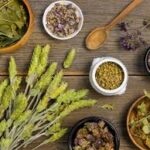Medicinal Herbs in Africa: Ancient Wisdom for Modern Health

For centuries, herbs have been the backbone of African traditional medicine, offering natural remedies for a wide range of illnesses. Even before the arrival of modern pharmaceuticals, African communities relied on plants for healing, prevention, and wellness. Today, as global demand for natural remedies grows, African medicinal herbs are gaining attention for their therapeutic power and cultural significance. From malaria treatment to boosting immunity, these herbs represent a bridge between ancient wisdom and modern health innovation.
The Rich Heritage of African Medicinal Herbs
Africa is home to thousands of plant species, many of which are used in traditional medicine. According to the World Health Organization (WHO), up to 80% of Africans rely on herbal medicine for primary healthcare. Herbs are not just medicine; they are deeply woven into culture, spirituality, and identity.
Commonly Used African Medicinal Herbs
-
Neem (Dogonyaro) – Known as Africa’s “village pharmacy,” neem is widely used for treating malaria, skin infections, and boosting immunity.
-
Bitter Leaf (Vernonia amygdalina) – Traditionally used for diabetes management, malaria, and improving digestion.
-
Moringa (Moringa oleifera) – Packed with vitamins, minerals, and antioxidants, moringa is often called the “miracle tree.”
-
Aloe Vera – A global favorite for skin health, wound healing, and digestive issues.
-
African Ginger – Used for coughs, colds, and digestive problems.
-
Sutherlandia (Cancer Bush, South Africa) – Known for its immune-boosting and anti-inflammatory properties.
Why Herbs Are Still Relevant Today
Despite advances in pharmaceuticals, African herbs remain vital because:
-
Accessibility: Many communities still lack access to hospitals or pharmacies, making herbs the first line of defense.
-
Affordability: Herbal medicine is often cheaper than imported drugs.
-
Natural Healing: Growing interest in organic and plant-based remedies fuels demand.
-
Cultural Acceptance: Herbal medicine is deeply rooted in African traditions and family health practices.
Health Benefits of African Herbs
-
Malaria Prevention and Treatment – Herbs like neem and artemisia have been used for centuries to combat malaria.
-
Boosting Immunity – Plants like moringa and bitter leaf enhance the body’s natural defense system.
-
Managing Chronic Diseases – Herbal remedies can support treatment of diabetes, hypertension, and arthritis.
-
Mental Health and Stress Relief – Herbs such as African basil (efirin) are believed to reduce stress and improve sleep.
-
Skin and Beauty – Aloe vera and turmeric are widely used for skincare and natural beauty routines.
Challenges Facing Herbal Medicine in Africa
While herbal medicine is rich with potential, challenges include:
-
Lack of Standardization – Dosages vary widely, making it hard to regulate.
-
Limited Scientific Validation – Many herbs lack robust clinical trials to support their use.
-
Counterfeit Products – Fake herbal remedies flood markets, putting patients at risk.
-
Integration Barriers – Herbal medicine is often sidelined in formal healthcare systems.
Bridging Tradition and Modern Healthcare
The future of herbal medicine in Africa lies in integration and innovation. Some positive developments include:
-
Scientific Research – Universities and research centers are studying herbs like moringa and artemisia for clinical validation.
-
Pharmaceutical Partnerships – Collaborations between herbalists and pharmaceutical companies can improve product safety and quality.
-
Digital Health Tools – Apps and AI platforms now help patients verify authentic herbal remedies and receive proper guidance.
-
Government Regulation – Agencies like Nigeria’s NAFDAC and South Africa’s SAHPRA are beginning to regulate herbal products more strictly.
Economic Potential of African Herbal Medicine
Beyond health, African medicinal herbs present a billion-dollar economic opportunity. The global herbal medicine market is projected to surpass $350 billion by 2030, and Africa’s biodiversity offers a competitive edge. With proper investment, local herbal industries could create jobs, boost exports, and improve healthcare access.
Conclusion
African medicinal herbs are more than ancient remedies — they are a living legacy of knowledge, resilience, and healing. By validating, regulating, and integrating them into modern healthcare systems, Africa can harness its herbal wealth for better health outcomes and economic growth.
The world is turning to natural remedies, and Africa’s treasure trove of medicinal herbs could hold the key to future health innovations.
Written by Fawzi Rufai, Medically Reviewed by Sesan Kareem



